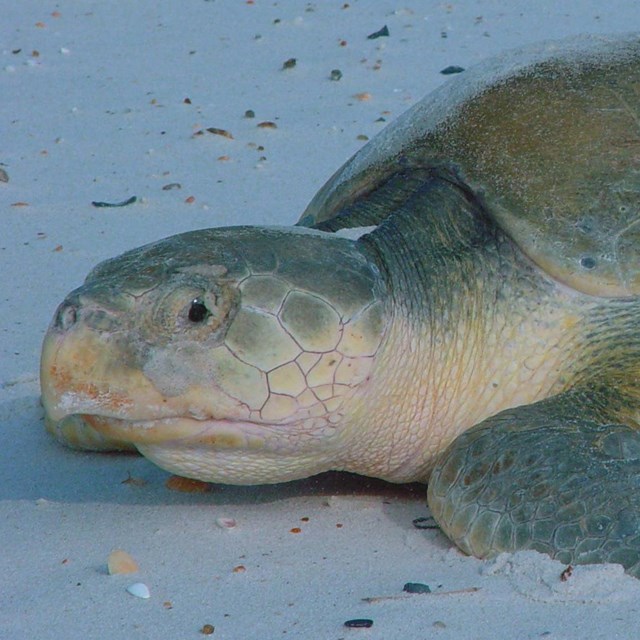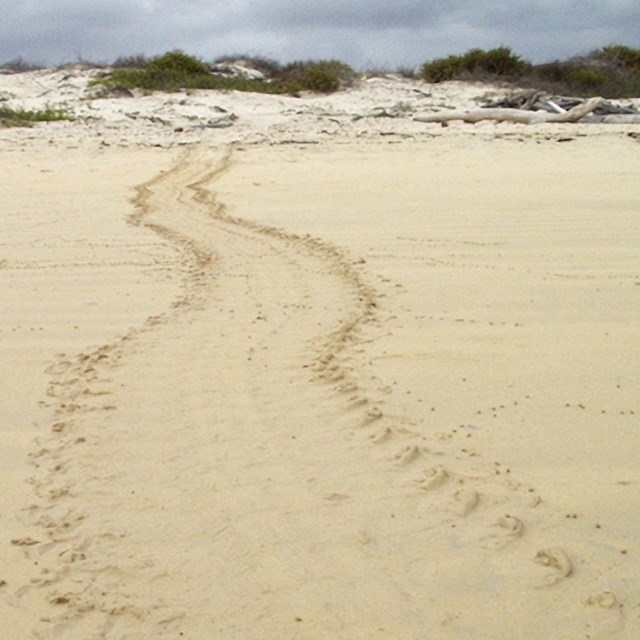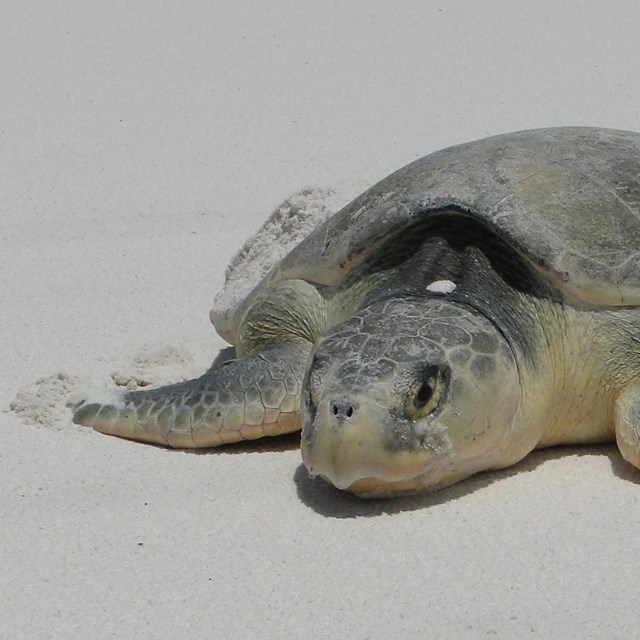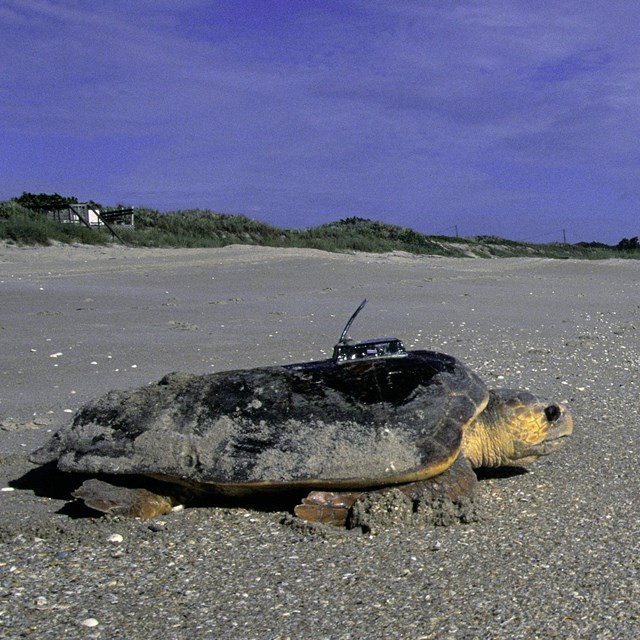Learn about them! The first step we can take to save sea turtles for present and future generations is to learn more about them, the challenges they face, and to advocate for their protection.
Volunteer: Volunteer at Gulf Islands as a citizen scientist to conduct field work to learn about the impact of neighborhood lighting on sea turtle nesting and how you and your community can help protect sea turtles.
Shield your lights: Light pollution from coastal communities, vessels, and campers can disturb nesting sea turtles and disorient hatchlings. Learn more about light pollution by visiting the National Park Service’s Dark Skies website.
Dispose of your waste properly. Waste that is not discarded properly can end up in our rivers, lakes, and oceans. Items such as monofilament fishing line, plastic grocery bags, plastic straws, and plastic 6-pack rings can entangle or be mistaken as food by sea turtles. Please dispose your waste responsibly and pick up any litter that you find.
Boat responsibly: As air-breathing reptiles, sea turtles rise to the surface to breath every 20 minutes or so. During nesting season, females swim off the beach waiting to come ashore to nest. Avoid boating at high speeds near beaches, and always be on alert for sea turtles surfacing to breathe.
Do not disturb nests: Sea turtles can nest anytime, day or night. If you see a turtle nesting, please do not approach it, use flash photography, or shine flashlights on it. You may watch from a safe distance. Report your observation to a Park Ranger.




